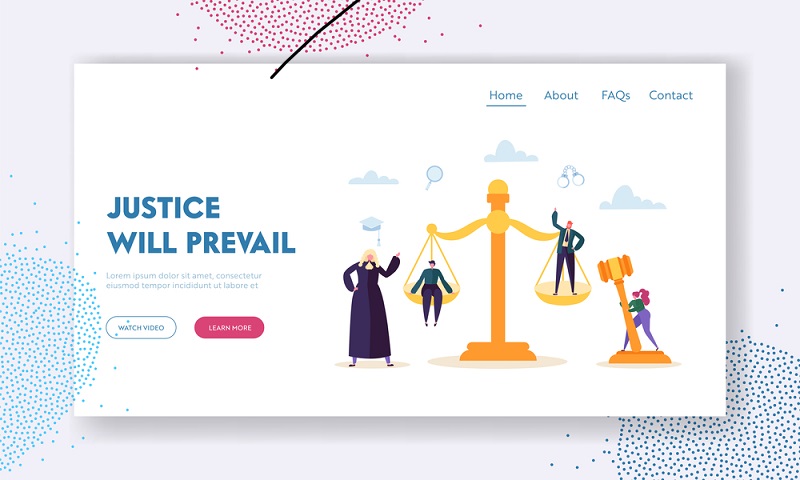Running a successful law firm takes a tremendous amount of time and effort. Lawyers work long hours – often evenings and weekends – to keep up with client demands. If you’re a lawyer, you may find yourself working 80+ hours a week just to meet billable hour quotas. How can you possibly find time to maintain an engaging blog that attracts new clients? This is where a legal blog writing service can help. Outsourcing your law firm’s blog content to professional law firm blog writers provides many advantages. A dedicated legal blogging service will save you time, drive more traffic to your website, establish you as an authority in your field, and ultimately generate more clients for your firm. Here’s a closer look at the key benefits of hiring blog writers for lawyers: Save Time On average, lawyers work extremely long hours. A 2021 report from the American Bar Association found that: Lawyers at small- and medium-sized firms work 42-54 hours per week on average. Lawyers at large firms work 66 hours per week on average. 86% of lawyers work outside of the typical 9-5 schedule. 56% continue working after 5 p.m. and 28% work past 6 p.m. 11% reported working after 10 p.m. With this kind of schedule, finding time to consistently publish quality blog content is a challenge. A professional legal blog writing service lifts this burden off your shoulders. Experienced law blog writers will handle content creation, formatting, and optimization. This allows you to focus on providing top-notch legal services to your clients. Drive Website Traffic Blogging brings several search engine optimization (SEO) benefits that can increase your website’s visibility. Unique, optimized blog posts expand your site’s footprint across search engines like Google. This inbound linking structure signals to Google that your site offers helpful information to readers. Higher rankings and more traffic will follow. According to Social Marketing Writing, adding a blog to your existing website is likely to increase traffic by over 400%. With more people visiting your site, you gain more opportunities to convert visitors into leads and clients. A dedicated legal content writing service will publish posts on a consistent basis to keep your content and rankings fresh. Establish Yourself as an Authority Consistent blogging demonstrates your knowledge and expertise in your legal specialty. Publishing articles and insights shows prospective clients that you stay on top of the latest issues and developments impacting your practice area. This establishes trust and credibility. Your blog creates a platform to address client questions and concerns, highlight achievements, and share success stories. Readers want advice from a reliable source before engaging a law firm. A recent survey showed that 77% of internet users read blogs. Of those, the majority (68.5%) think blogs add credibility to a website. Quality blog content proves you offer sage legal counsel rooted in experience. This attracts clients who need specialized representation from a true authority. Attract More Clients The ultimate goal of blogging is to generate more clients for your firm. When you post engaging, valuable content, you attract visitors interested in your services. These prospects go from anonymous readers to leads when they subscribe to your email list or contact your firm. A legal blog writing service focuses solely on creating posts that speak to your ideal clients. Their writing compels visitors to learn more about your law practice. And with SEO-optimized articles, your website will rank higher so it’s easier for potential clients to find you. This inbound marketing strategy brings your expertise straight to those needing legal help. Which Blogging Service Should Law Firms Choose? To reap all the benefits mentioned above, partner with a legal blog writing service that specializes in legal content. Look for these key features: Native English writers with experience creating law firm blogs and legal content. Writers should have a firm grasp of legal terminology and topics relevant to your practice area. Focus on optimizing posts for SEO by incorporating relevant keywords. This improves search visibility and traffic. Capability to publish blog posts in a frequent, consistent cadence. Regular fresh content keeps visitors coming back. Topic research expertise to identify and write on issues and questions meaningful to your target clients. Content should solve problems and add value. Design of posts specifically for your website’s blog section, with your look and feel. Flexible packages and à la carte options to meet your blogging frequency and budget needs. When vetting blog writing services, be sure to choose one that aligns with your law firm’s unique goals and brand voice. Look for writers who take the time to understand your target audience, specialties, and messaging. The right partner will publish content designed to speak to potential clients that need your specific services. This alignment ensures your blog effectively builds credibility and attracts your ideal customers. Make Your Law Firm Stand Out In such a competitive landscape, having a website isn’t enough. You need compelling content to attract potential clients among the more than 450,000 law firms in the U.S. An experienced legal blog writing service will establish you as a thought leader, drive traffic, and deliver qualified leads. The time savings also let you focus on providing excellent legal guidance to those who need it most. Investing in professional legal blogs means investing in your firm’s future growth. Partner with a Trusted Legal Blog Writing Service If you need a legal blog writing service to help grow your law firm, contact the trusted team at We Write Law Blogs. Our professional writers create optimized, engaging content that drives results. Learn more about our flexible custom packages tailored to the needs of busy lawyers. Contact us today to claim your free first blog post. Let us handle your legal blog writing so you can focus on your clients.
How to Improve Your Law Blog’s Content Instantly
A law blog can be a great way to establish your expertise, attract new clients, and provide value to your existing clients, which is why 9 out of 10 marketers use blogging to achieve their content marketing goals. In addition, firms with blogs generate 67% more leads each month than those that don’t blog. However, unless you are an experienced legal blog writer, creating compelling legal content consistently can be challenging. Use the tips below to instantly improve your law blog’s content. Perform Thorough Keyword Research The foundation of quality blog content is thorough keyword research. You need to take the time to identify high-search-volume keywords and phrases that relate to your practice areas and target audience. Don’t just look for general terms like “personal injury lawyer”- instead, find specific, long-tail variations like “personal injury lawyer Boston” or “personal injury lawyer specializing in bicycle accidents”. These longer phrases will be less competitive and more targeted. Using relevant keywords naturally throughout your posts will improve SEO and help attract more readers searching for your services. Tools like Google Keyword Planner, Semrush, Ahrefs and Moz can help uncover the best legal content writing terms. Spend time digging into the data these tools provide to ensure you understand search volume and competition for target phrases. Create Content Clusters Around Themes Many law blogs publish content randomly without connecting posts together. A better approach is to create content clusters by developing a series of in-depth posts around the same theme or topic. For example, you could write a comprehensive guide on “The Most Common Mistakes in Divorce Proceedings.” Within this guide, you can have titles like: Failing to Make Complete Financial Disclosures Not Following Court Rules and Procedures Relying on Faulty Legal Advice From Non-Experts Ignoring Tax and Estate Planning Implications Failing to Settle Before Trial Interlink these posts to boost engagement. Content clusters keep readers interested by providing valuable legal content on a single topic from multiple angles. This approach shows your expertise on a theme better than one-off posts. Note that while blog posts can educate readers on legal issues, attorneys and law firm blog writers must be careful not to cross the line into giving direct legal advice. Each case has unique facts and circumstances that require personalized counsel from a qualified lawyer. Generic advice in a blog post or article could be detrimental if applied to a specific person’s situation without an attorney’s guidance. Attorneys have an ethical obligation to avoid offering legal advice to site visitors who are not established clients. Blog content should therefore inform generally while urging readers to seek professional legal services for their specific needs. Interview Industry Experts Expert interviews are a powerful way to create compelling legal content quickly. Identify leaders in your field like veteran judges, law professors, and experienced attorneys. Reach out and interview them about their insights and experience with your topic. Transcribe the interviews into long-form blog posts written by legal writers for hire and include lots of quotes from the experts explaining the topics in their own words. Expert interviews add credibility and can generate social shares when the influencers promote them to their own audiences. Research Trending Topics in the Industry Consistently check Google Trends, news sites, legal publications, court documents and other resources to find trending topics relevant to your audience. If a new law gets passed, Supreme Court ruling issued, or sensational case unfolding, quickly write insightful legal analysis to capitalize on the search traffic and interest. Timely posts from law writers on trending legal topics can instantly attract more readers and establish your reputation as a thought leader. But don’t just summarize the news – provide your expert perspectives and analysis. Optimize On-Page SEO for Each Post Make sure your blog posts are optimized for search engines as well as human readers. This includes using your target keywords in titles and meta descriptions, adding alt text to images, and interlinking related internal content. Proper technical on-page SEO will improve your blog’s rankings and organic traffic over time. Don’t forget that local SEO for lawyers is important, too, so include geographical keywords, such as CITY and STATE keywords. For example, if your law firm is based in LA, you could ask your legal content writing service to produce blogs with titles like ‘Left-Turn Motorcycle Accidents in Los Angeles, California: Why They’re So Common and Dangerous’. Consider hiring a legal marketing agency to conduct an on-page SEO audit of your blog and recommend improvements. This can take your legal content writing to the next level. Promote Content on Social Media Don’t just publish posts written by a legal blog writer and hope readers find them. Actively promote your legal content writing on social media platforms like Twitter, Facebook, and LinkedIn. Share blog post links, compelling quotes, and relevant images. Engage followers by asking questions and responding to comments. Additionally, encourage colleagues, employees, and existing clients to share your content with their networks to expand your reach. Social promotion is critical for getting more eyeballs on your law blogging content. Use Data From Past Posts Analyze the topics, headlines, and formats of your highest trafficked blog posts. Then create new content modeled after your most successful pieces. Look for overlapping themes and subjects among popular posts that you can expand on in future legal content writing. Repurposing what has worked can save time while maintaining engagement. Get Input From Colleagues Solicit topic ideas and feedback on draft posts from knowledgeable colleagues. Fellow attorneys can suggest relevant issues to cover and point out concepts you omitted or didn’t fully explain. Their insights can strengthen your legal content writing and prevent mistakes. Interview Past Clients Interview former clients about their experiences for case study posts. Focus on positives like legal challenges overcome and value provided. Client testimonials and quotes add authenticity and demonstrate real-world impact – 92% of consumers read testimonials and reviews before making a purchase. But ensure client consent and protect confidentiality. Use Visuals Insert relevant photos,
Where Do I Get Blog Topics and Content Ideas for My Law Blog?
Coming up with fresh, engaging blog post ideas can be one of the most challenging parts of running a law blog. As a legal blogger, you want to provide valuable information for your readers while also promoting your law firm or legal services. But constantly generating new law blog content requires time and creativity. Here’s an overview of effective strategies to find law blog topics and create content that resonates with your target audience. Why Blog Topics Matter for Law Firms Quality blog content is essential for legal websites for several reasons. First, blogging helps improve your search engine optimization (SEO) by targeting relevant keywords. Second, blogs allow you to demonstrate your expertise and establish trust with potential clients. Third, a blog shows you are an authority who provides up-to-date legal commentary and analysis. That’s why taking the time to brainstorm law blog ideas is so critical. Without interesting topics and well-written posts, you won’t fully capitalize on the benefits of legal blogging. Tips for Picking the Best Law Blog Topics With a bit of planning and research, you can develop a steady stream of law blog post ideas. Here are some tips: Consider trending legal news or changes in legislation. Timely, informative analysis of new developments shows readers you are on top of issues impacting the law. Profile interesting cases or legal dramas in the headlines. Educate readers on the key facts, laws, and potential outcomes. Address frequently asked questions from clients. Turn these common concerns into blog posts that demonstrate your ability to explain complex legal matters. Share law practice tips and strategies. For example, provide guidance on working with clients or marketing a firm. This establishes your authority. Curate content from other reputable legal blogs or news sites. Add your own commentary and analysis to make the content original. Interview experts like judges, law professors, or other attorneys. Transcribe these Q&As into intriguing guest posts. Research keywords and questions using Google’s keyword planner. Tailor posts around terms people search when looking for legal help. Promote your own content like case wins, publications, speeches, or webinars. Discuss details and key takeaways for readers. Look at trending hashtags on social media for inspiration on hot topics to cover. Review law publications, journals, or newsletters in your practice area for ideas. Poll colleagues at your firm to identify frequently asked questions by clients. These can become post topics. By utilizing several of these tactics, you’ll never run short on law blog post ideas. Elements of an Engaging Blog Post Once you’ve settled on a topic, crafting quality content is the next step. Here are some elements of an engaging law blog post: Begin with an interesting title using emotional hooks like numbers, questions, or contrasts. For instance, “10 Reasons You Need a Personal Injury Lawyer.” Start with an intro that draws readers in, such as a story, surprising fact, or question to the reader. Structure content in short paragraphs with subheadings for easy skimming. Include relevant statistics, supporting facts, examples, or expert opinions to build credibility. Use plain language to explain complicated legal issues simply but accurately. Avoid overusing legal jargon. Inject personality and humor when appropriate to create an authentic, conversational tone. Add images, videos, infographics, or other visuals to reinforce key points. Check that the content is optimized for SEO by using target keywords in subtitles, body text, meta descriptions, alt text, and filenames. End each post with a summary and call-to-action so readers know what you want them to do next. Following these tips will produce more engaging, optimized law blog content. Why Good Blog Post Titles Are Crucial While the content itself is critical, none of that matters if readers don’t click on your blog post in the first place. That’s why crafting compelling titles is a top priority. Consider this data on post headlines: 80% of people read only the headline before deciding to read more or move on. That means a weak title can doom your content to obscurity. Posts with 6-10 words in the title have higher click-through rates than extremely long or short titles (Databox 2024). Posts with numbers in the title perform better than those without. Numbers pique reader curiosity. Headlines with bracketed text like “best” or “worst” receive more clicks as readers want to see your rankings. Question headlines get more clicks by creating an information gap readers want to fill by reading your post. With stats like these, it’s obvious why taking time to perfect a blog title is essential. Thankfully, there are some shortcuts available. How to Come Up with Law Blog Titles Manually brainstorming title ideas for each law blog post can be tedious. Often, it seems harder to create the headline than the actual content! Fortunately, there are now tools that can generate SEO-friendly headlines in seconds. For example, check out our Personal Injury Blog Post Title Generator. To use it, simply: Select an injury type from the drop-down menu, like car accident, slip and fall, dog bite, etc. Enter the required US state where the incident occurred. Hit “Generate Title” In an instant, you’ll receive a clickable, SEO-optimized blog title tailored to that injury type and location. The tool considers optimal headline length, emotional hooks, geography keywords, power words, and more. Having an automated tool like this alleviates the frustration of endlessly brainstorming titles from scratch. It delivers fresh, data-backed headline ideas in seconds. You can then take the generated title and customize or tweak it further as needed. But it provides an excellent starting point based on proven best practices for headlines. For legal blog writers short on time or struggling with catchy titles, the Personal Injury Blog Post Title Generator is a game changer. How Long Should You Spend Writing a Blog Post? Creating the content for a quality law blog post requires significant time and effort. On average, experienced legal content writers invest about 4 hours per blog article (OptinMonster, 2024). This allows sufficient time for: Conducting background research on the
Why Does a Law Firm Need a Website?
Having a website is crucial for any business, including law firms, which is why 75% of lawyers believe their website is the most effective tool in their marketing arsenal. Here are the main reasons why every law firm, big or small, needs to have a professional website. Establish Credibility and Legitimacy A law firm website immediately establishes credibility and legitimacy for the practice. In a survey carried out by iLawyerMarketing, participants said they looked at six or more law firm websites before deciding to hire a lawyer. 96% of people who want legal advice use a search engine, and 84% of people who search for a law firm online will go on to hire an attorney. In an online search, most potential clients will come across the law firm’s website before considering contacting them. An outdated or poorly designed site reflects poorly on the firm and creates doubts about their capabilities. On the other hand, a modern, well-designed website conveys professionalism and can reassure visitors that the firm is technologically competent. Detailed attorney profiles and areas of practice establish expertise. Client testimonials and case studies build further trust. Did you know that 90% of people who read positive customer success content say it affected their buying decisions? Remember, a professional website is the first touchpoint for potential clients to assess the law firm’s credibility. Attract New Clients and Cases An effective website is a 24/7 marketing channel for acquiring new clients. With expert content written by a legal blog writer, relevant keywords can be incorporated to optimize the site for search engines. This allows the pages to rank highly in search results when potential clients are searching for legal assistance related to the firm’s practice areas. The website layout, messaging and calls-to-action can be designed to motivate visitors to contact the firm. Lead generation forms allow visitors to directly inquire about services. Detailed service pages and attorney bios allow them to assess if the firm is a good fit for their needs. A website with targeted marketing content produced by a legal blog writing service can generate direct leads and new client inquiries. It’s often more time effective to work with law firm blog writers than use an in-house attorney content writer. Showcase Services Offered A law firm website should include detailed pages highlighting the different services and practice areas covered. This allows prospects to learn about the firm’s capabilities in specific legal domains. Service pages optimized with relevant keywords by a legal content writing service can rank well for related searches and attract clients looking for assistance in those areas. They can showcase accomplishments in specific practices like personal injury, family law, employment law, etc. Testimonials from clients successfully served in those domains add social proof. This level of detail about services offered is not possible in offline marketing materials. Communicate with Existing Clients Beyond attracting new clients, a law firm website also facilitates communication with existing clients. Important legal resources, articles and tools can be provided to help clients understand processes, rights and obligations. A client login portal allows providing case status updates, documents and other information in a secure online environment. This improves transparency and facilitates information exchange. Client testimonials and reviews can be showcased to establish trust for other potential clients. Project Professional Image The website design, content quality, and user experience send signals about the professionalism of the law firm. An outdated, amateurish, or poorly organized website reflects poorly on the firm’s capabilities. A modern, optimized, professionally designed website with engaging legal content from law writers conveys that the firm is meticulous, competent, and client-focused. Visitors expect a level of quality and detail on a law firm website. Meeting these expectations is critical for establishing trust and credibility. Cost-Effective Marketing A website provides law firms with an owned media marketing channel. Unlike printed materials or advertising, it has minimal recurring costs but provides 24/7 visibility. Optimized content by a legal content writing service draws organic traffic and leads over months and years. The content can be easily updated to reflect new information. Compared to offline media, website marketing provides extensive reach and flexibility at a low cost. Accessibility to Clients A website allows quick and easy access for clients to find information about the law firm or contact attorneys. Locations, contact information, attorney details and practice areas are conveniently accessible online at any time. Potential clients can get information, evaluate services and make inquiries on their own schedule. Existing clients can find resources, send messages and schedule consultations. This makes the client experience efficient and transparent. Lead Generation Compared to traditional media, a website provides vastly superior lead generation capabilities through multiple avenues. Search engine optimization and pay-per-click advertising attract visitors specifically searching for related legal services. Prominent calls-to-action can convert visitors into leads. Lead generation forms allow for capturing visitor information for further communication. Social media integration facilitates sharing content and drives referral traffic. All this is achievable at a relatively low cost. Stay Ahead of Competitors A website allows law firms to keep up with competitors who already have an online presence. In the digital age, clients expect that any reputable law firm will have a website. Without one, the law firm risks appearing outdated or behind the times. An effective website is essential to stay current in the marketplace and not lose potential business to competing firms. Share News and Updates A website provides a platform for law firms to publish news articles, attorney accolades, event updates, legal insights, and other timely information. This helps build reputation and also informs existing clients. Dedicated news or blog sections optimized by a legal content writing service can improve search visibility and traffic. Social media integration further expands reach. Sharing the latest developments regularly fosters client and community relations. Connect on Multiple Channels Visitors may interact with the law firm’s website but also connect via other digital channels like social media, email marketing, online directories, and more. The website forms the digital hub that
15 Content Ideas for Your Personal Injury Law Firm Blog
A blog can be a great way for a personal injury law firm to establish itself as an authority in the field, attract new clients, and engage with current clients. Yet, according to data from the American Bar Association, only one-third of law firms have a blog, with larger firms more likely to maintain a website blog. Blogging is important for many reasons, but coming up with fresh, relevant blog content ideas on a regular basis can sometimes be challenging, even for experienced law firm blog writers. Here are 15 content ideas to help you brainstorm topics for your personal injury law firm’s blog. 1. Personal Injury Law 101 Provide an overview of key personal injury law concepts and terms to educate potential clients. You can break this down into a series of introductory posts on topics like negligence, liability, settlements, statutes of limitations, and more. These foundational posts can introduce readers to how personal injury law works. Go in-depth on each concept, clearly defining terms and providing illustrative examples. Explain how statutes of limitations vary across different types of claims. Compare negligence and liability standards. Outline the settlement process in detail. 2. Specific Types of Injury Claims Focus on the details of how your firm handles different types of injury claims. For example, you could have in-depth posts on motor vehicle accidents, slip and falls, medical malpractice, workers’ compensation, and other common claims your attorneys handle. Explain the process and provide tips for these specific cases. Provide checklists of steps to take and documents to collect for each type of claim. Give overviews of insurance issues and timelines unique to each case type. Share strategic tips your attorneys use when proving liability and negligence for motor vehicle accidents versus slip and falls. A legal content writing service can help you come up with ideas. 3. Client Testimonials Showcase client success stories and testimonials. With their permission, interview past clients your firm has helped recover damages. These first-hand accounts build credibility and let potential clients know what to expect. Ask in-depth questions about clients’ experiences from start to finish working with your firm. Share details on obstacles they faced, key milestones, and their feelings at the resolution of their case. Quote their assessments of specific attorneys. 4. Personal Injury Statistics Stay up-to-date on personal injury statistics and trends locally and nationally. Report on studies, facts, and figures that provide context and demonstrate your firm’s expertise. Personal injury stats can help attract search traffic as well. Analyze the implications of statistics and put them into perspective for your readers. Provide suggestions based on trends you spot in the data. Compare your local area’s injury patterns and claims versus national averages. 5. Personal Injury Case Results Discuss notable wins, settlements, and case results your attorneys have achieved for clients. Don’t use real client names, but highlight major recent cases and the positive outcomes your firm secured. This can help display your track record. Provide the details leading up to big settlements and case wins without disclosing confidential information. Explain innovative legal strategies your firm used to secure favorable results. Tie case results back to your attorneys’ skills in components like investigation, negotiation, trial litigation, and client rapport. 6. Answers to FAQs Ask your law firm blog writers to create posts that directly respond to the most frequently asked questions your attorneys receive. Answer common inquiries and concerns related to retaining a lawyer, filing claims, receiving compensation, working with insurance companies, and more. Expand each FAQ answer into an in-depth explanation. Cover related follow-up questions and provide examples to illustrate your points. Format posts clearly with FAQs as headers so readers can easily find answers to their pressing questions. 7. Overviews of the Claims Process Law firm blog writers can break the claims process down into steps from start to finish. Explain what a typical timeline looks like (typically 1-2 years), what clients need to provide, the roles of insurance adjusters, how damages are calculated, and the key phases of a claim. This helps set expectations. Outline every stage of the claims process chronologically. Give estimated timeframes for how long each phase takes. Provide checklists of documents clients should gather at each point in the process to speed things along. Explain how your attorneys guide clients through the claims process from initial accident reports all the way through to settlement. 8. Personal Injury News Stay up-to-date on the latest personal injury news and trends locally and nationally, such as GSK’s win in a personal injury case over Zantac use or the $1.1 billion settlement in the Philips US class action personal injury lawsuit. Report and comment on new legal decisions, regulations, insurance industry changes, and other developments relevant to your readers. Analyze how new legal precedents and regulations may impact future injury claims and outcomes for accident victims in your state. Highlight changes in insurance company policies and practices and what they mean for claimants. Ask law firm blog writers to educate readers on important new personal injury laws and proposals being debated by local and national politicians and policymakers. 9. Attorney and Staff Profiles Introduce the attorneys and other professionals who work at your firm through informative bios and profiles. Share credentials, specialties, achievements, and personality details to help showcase your experienced team. Go in-depth on the background and capabilities of each staff member. Share little-known facts and details about their journey to personal injury law. Help readers get to know your attorneys as real people and understand what drives their passion for this work. 10. Lists and Informational Guides Create posts formatted as numbered lists or guides that offer tangible value for readers. For example, your law firm blog writers could have a post on the top 10 questions to ask when choosing a personal injury lawyer. Other list post ideas include safety tips, mistakes to avoid after an accident, resources for accident victims, etc. Expand each item on your lists into a detailed explanation. Provide ample context and rationale
Personal Injury Statute of Limitations by State 2024
In 2024, the statute of limitations for filing a personal injury lawsuit remains unchanged in most states. This deadline ranges from 1 to 6 years, depending on the location. For injured victims, it is essential to understand their state’s time limit so they can take action before it’s too late. As an attorney, law blogging can help raise awareness about these filing deadlines and ensure victims’ rights are protected. Blogs focused on personal injury law serve several important purposes. They educate the public about their legal options after an accident. They bring credibility to lawyers who share their knowledge. Most importantly, they empower injured victims to advocate for themselves and seek fair compensation. Personal injury blogging should highlight the statute of limitations rules in every state. If you aren’t sure where to start, it’s a good idea to enlist the help of professional law firm blog writers. What is the Statute of Limitations? First of all, you’ll need to outline what the statute of limitations is. As you know, the statute of limitations sets a deadline for taking legal action. These deadlines exist for civil cases like personal injury and medical malpractice lawsuits. The time limit encourages prompt filings so evidence and memories stay fresh. Defendants also gain legal closure once the deadline passes. Your readers need to know that every state has its own statute of limitations for personal injury claims and that the clock starts ticking on the date of the injury or sometimes the date it was discovered. Run out of time and the right to sue is lost forever. Why Blogging About Statutes of Limitation Matters Legal blogs serve an important educational function by teaching readers about personal injury statutes of limitation in each state. This knowledge empowers victims to make wise choices after an accident. Understanding state time limits can make the difference between receiving fair compensation or losing rights. Using law firm blog writers to post about state filing deadlines also increases transparency around the legal process. By clearly explaining statutes of limitation, lawyers help victims navigate a complex system. Readers will appreciate straight answers about how long they have to take action after an injury. In addition, blogging lends credibility to lawyers who share their expertise. Quality legal analysis helps establish trust with potential clients. Personal injury attorneys who publish blogs show a commitment to helping injured victims in any way they can – even if readers do not become paying clients. Finally, blogging about statutes of limitation gives victims a platform to find their voice. By learning their rights, the injured party can better advocate for themselves in the legal process. Proper legal education leads to empowerment. State-by-State Personal Injury Statutes of Limitation in 2024 Now let’s examine the personal injury statutes of limitation on a state-by-state basis for 2024: Alabama: 2 years Alaska: 2 years Arizona: 2 years Arkansas: 3 years California: 2 years Colorado: 2 years or 3 years for auto accident claims Connecticut: 2 years Delaware: 2 years District of Columbia: 3 years Florida: 4 years Georgia: 2 years Hawaii: 2 years Idaho: 2 years Illinois: 2 years Indiana: 2 years Iowa: 2 years Kansas: 2 years Kentucky: 1 year or 2 years for auto accident claims Louisiana: 1 year Maine: 6 years Maryland: 3 years Massachusetts: 3 years Michigan: 3 years or 1 year for personal injury protection insurance claims Minnesota: 2 years Mississippi: 3 years Missouri: 5 years Montana: 3 years Nebraska: 4 years Nevada: 2 years New Hampshire: 3 years New Jersey: 2 years New Mexico: 3 years New York: 3 years North Carolina: 3 years North Dakota: 6 years Ohio: 2 years Oklahoma: 2 years Oregon: 2 years Pennsylvania: 2 years Rhode Island: 3 years South Carolina: 3 years South Dakota: 3 years Tennessee: 1 year Texas: 2 years Utah: 4 years Vermont: 3 years Virginia: 2 years Washington: 3 years West Virginia: 2 years Wisconsin: 3 years Wyoming: 4 years These statutes of limitation can get confusing, which is why law firm blog writers play such a vital role. They provide clarity around the exact time victims have to contact an attorney after an accident. With this knowledge, the injured person can avoid missing the deadline and having their case dismissed on procedural grounds. Tips for Injured Victims with Looming Statutes of Limitation For those staring down an approaching statute of limitation in their state, several proactive steps can preserve their right to sue. You might want to outline what these are in your blog. For example: Consult with a personal injury attorney right away. Never assume you have plenty of time left to file. Let a lawyer review your case today. Gather evidence promptly. Police reports, medical records, witness statements, and other documentation will be vital. Don’t delay collecting them. Keep detailed records of how the injury has impacted your life. Document lost income, costs, pain levels, and recovery progress. Follow your doctor’s advice closely. You need quality medical care along with records of treatment plans, recommendations and progress. Don’t give statements or sign anything without consulting your attorney first. You don’t want to unintentionally hurt your case. Be honest with your lawyer. Providing inaccurate facts or withholding information can sabotage your claim down the road. By taking proactive steps today, your clients can build a strong injury claim before their state’s statute of limitation expires. The Value of Legal Blogging in 2024 and Beyond In 2024 and beyond, legal blogging will continue shining a spotlight on important issues like personal injury statutes of limitation. These blogs empower victims to understand their rights and navigate the claims process. By providing a trusted educational forum, legal blogs help readers at their most vulnerable moments. Reliable information can make all the difference when suffering after an accident. Blogging personal injury attorneys extend their advocacy through writing. Hopefully, all states will consider extending their statute of limitation deadlines in the future. Short deadlines like 1 year don’t give injured victims enough time to file claims
Offering Legal Information vs Giving Legal Advice
Understanding the distinction between providing legal information and giving legal advice is crucial for professionals in various fields, including paralegals, librarians, writers for law blog companies, and customer service representatives. This article explores the key differences, potential risks, and best practices for offering legal information without crossing into the realm of legal advice. Defining Legal Information and Legal Advice Legal Information: Legal information refers to general facts about the law, legal procedures, and the legal system. It is typically objective, publicly available, and does not require in-depth analysis of a specific situation. Examples include: Explaining court procedures Providing copies of laws or regulations Describing legal terms and concepts Offering information about legal rights and responsibilities Legal Advice: Legal advice involves applying legal knowledge to a particular person’s specific circumstances. It typically includes: Interpreting how laws apply to an individual’s situation Recommending a course of action based on legal analysis Predicting potential outcomes of legal proceedings Drafting legal documents for a specific case The Importance of the Distinction Understanding the difference between legal information and legal advice is critical for several reasons: Unauthorized Practice of Law: Only licensed attorneys are permitted to provide legal advice. Offering legal advice without proper credentials can result in penalties for unauthorized practice of law. Liability Concerns: Providing incorrect legal advice can lead to professional liability and potential lawsuits. Ethical Considerations: Professionals have an ethical responsibility to operate within the boundaries of their expertise and qualifications. Client Protection: The distinction helps ensure that individuals receive appropriate guidance from qualified legal professionals when needed. Key Differences Between Legal Information and Legal Advice Specificity – Legal information is general and applies broadly, while legal advice is tailored to an individual’s unique circumstances. Application – Legal information presents facts without interpretation, whereas legal advice involves analyzing how laws apply to a specific situation. Recommendation – Legal information does not include recommendations for action, but legal advice often suggests specific courses of action. Expertise Required – A legal blog writer providing legal information typically doesn’t require specialized legal training, while giving legal advice necessitates legal education and licensure. Responsibility – An attorney content writer offering legal information is generally not held responsible for how it’s used, but attorneys providing legal advice have a professional duty to their clients. Challenges for Writers for Law Blog Sites Legal blog writing companies face particular challenges in navigating the line between information and advice. They must provide valuable, accurate content without inadvertently offering legal advice. Here are some strategies for law blog writers: Use Disclaimers: Clearly state that the content is for informational purposes only and does not constitute legal advice. Avoid Personalization: Write in general terms rather than addressing specific scenarios or individuals. Cite Sources: Reference authoritative sources for legal information to enhance credibility. Encourage Professional Consultation: Remind readers to consult with a licensed attorney for advice on their specific situations. Focus on Education: Aim to educate readers about legal concepts rather than solving individual legal problems. Best Practices for Providing Legal Information Law blog writers who regularly offer legal information should follow these best practices: Clearly Define Boundaries: Establish and communicate clear limits on the type of assistance you can provide. Use Neutral Language: Avoid language that implies a recommendation or prediction of outcomes. Provide Multiple Options: When discussing potential courses of action, present various alternatives without endorsing a specific choice. Refer to Official Sources: Direct individuals to official legal resources, such as court websites or government publications. Maintain Consistency: Develop standard responses for common inquiries to ensure consistent, appropriate information. Stay Current: Regularly update your knowledge of legal information and any changes in relevant laws or procedures. Document Interactions: Keep records of the information provided to individuals for reference and protection. Potential Risks of Crossing the Line Offering legal advice without proper qualifications can lead to serious consequences. Individuals may face fines or other penalties for unauthorized practice of law. Employers may take disciplinary action against employees who overstep their roles. Incorrect legal advice can lead to negative outcomes for those who rely on it. Organizations and individuals may suffer reputational harm if accused of providing unauthorized legal advice. Training and Education To maintain the appropriate balance between providing legal information and avoiding legal advice, organizations such as a legal blog writing service should: Develop Clear Policies: Establish guidelines for employees on what constitutes legal information versus legal advice. Provide Regular Training: Offer ongoing education to staff members who interact with the public on legal topics. Create Resources: Develop reference materials and scripts to guide employees in providing appropriate legal information. Encourage Consultation: Foster a culture where employees feel comfortable seeking guidance when unsure about the boundaries. The Role of Technology Advancements in technology have introduced new challenges and opportunities in distinguishing between legal information and advice. Ensure that automated systems such as AI chatbots are programmed to provide only general legal information and include appropriate disclaimers. In 2022, 88% of users admitted to having at least one conversation with a chatbot. Regularly review and update online content written by your law firm blog writers to maintain accuracy and avoid inadvertently crossing into legal advice. Train staff on how to maintain appropriate boundaries when interacting with individuals through email, chat, or social media. Understanding the distinction between legal information and legal advice is essential for professionals in various fields, including writers for law blogs. By adhering to best practices, maintaining clear boundaries, and focusing on providing general, factual information, individuals and organizations can effectively assist the public without engaging in the unauthorized practice of law. For writers for law blog companies, striking the right balance between informative content and avoiding legal advice is an ongoing challenge. By staying informed, using appropriate disclaimers, and focusing on educational content, law writers can continue to provide valuable resources to their readers while respecting the important distinction between information and advice in the legal field. Are you looking for a legal blog writing service? Look no further! Contact us for all your legal blogging
Is Your Law Firm Blog Solving Your Client’s Problem?
In the competitive world of legal services, a well-crafted blog can be a powerful tool for attracting and retaining clients. However, many law firms fall into the trap of creating content that fails to address their clients’ needs effectively. This article explores how to ensure your law firm’s blog is truly solving your clients’ problems and providing value. The Purpose of Legal Content Writing Legal content writing serves multiple purposes for law firms. It demonstrates expertise, improves search engine rankings, and provides valuable information to potential clients. However, the most crucial aspect of legal content writing is its ability to address and solve client problems. When potential clients search for legal information online, they’re often seeking solutions to specific issues. Did you know that 32% of people search online when they want to hire an attorney? Your law firm’s blog should serve as a resource that not only informs but also guides readers toward potential solutions or next steps. Understanding Your Client’s Pain Points To create content that truly resonates with your audience, you need to understand their pain points. Blogging for lawyers involves: Identifying common legal issues in your practice areas Researching frequently asked questions Analyzing client consultations for recurring themes Monitoring social media and online forums for trending legal concerns By focusing on these areas, you can develop a content strategy that directly addresses your clients’ most pressing concerns. Crafting Problem-Solving Content Once you’ve identified your clients’ pain points, the next step is to create content that offers solutions. Here are some strategies to ensure your legal content is problem-solving focused: Use Clear, Jargon-Free Language Legal concepts can be complex, but your blog should explain them in terms that a layperson can understand. Avoid excessive legal jargon and focus on clear, concise explanations. An MIT study found that non-lawyers could only understand 38% of what they read in a legal document. Provide Actionable Advice While you can’t offer specific legal advice through a blog, you can provide general guidance on steps readers can take to address their issues. This might include information on document preparation, negotiation strategies, or when to seek professional legal help. Use Real-Life Examples Illustrate legal concepts with relatable case studies or hypothetical scenarios. This helps readers connect the information to their own situations. Address Common Misconceptions Many legal problems arise from misunderstandings about the law. Use your blog to clarify common misconceptions in your practice areas. Structuring Your Blog Posts for Maximum Impact The structure of your blog posts can significantly impact their effectiveness in problem-solving. Consider the following elements: Compelling Headlines Your headlines should clearly state the problem or question your post will address. For example, “5 Steps to Take After a Car Accident in [Your State]” immediately tells readers what they’ll learn. You can use our title generator tool if you need help with this. Clear Introduction Begin each post by clearly stating the problem you’ll be addressing. This helps readers quickly determine if the content is relevant to their needs. Subheadings for Scannability Use descriptive subheadings to break up your content and make it easy for readers to find the specific information they need. Conclusion with Next Steps End each post with a clear conclusion that summarizes the key points and provides guidance on what readers should do next. Leveraging Different Content Formats While well written blog posts from a legal content writing service are the foundation of most law firm blogs, consider incorporating other content formats to cater to different learning styles and preferences: Infographics: Visualize complex legal processes or statistics. Videos: Explain concepts through short, engaging video content – 96% of people rely on videos to learn more about products and services. Podcasts: Discuss legal issues in an audio format for on-the-go consumption. Downloadable Resources: Offer checklists, guides, or templates that provide additional value. Incorporating SEO Best Practices For your problem-solving content to reach its intended audience, it needs to be discoverable. Implement local SEO for lawyers in your legal content: Keyword Research: Identify and incorporate relevant keywords that your potential clients are using in their searches. We can help with this. Meta Descriptions: Write compelling meta descriptions that clearly state the problem your content addresses. Internal Linking: Link to related content within your site to provide additional value and keep readers engaged. Mobile Optimization: Ensure your blog is mobile-friendly, as many people search for legal information on their smartphones – 63% of searches now take place on mobile devices. Measuring and Improving Your Content’s Effectiveness To ensure your blog is truly solving client problems, you need to measure its effectiveness and continuously improve: Analytics: Use tools like Google Analytics to track user engagement, time on page, and bounce rates. Comments and Feedback: Encourage readers to leave comments and provide feedback on your content. Lead Generation: Monitor how many blog readers convert into leads or clients. Regular Content Audits: Periodically review and update your content to ensure it remains accurate and relevant. Ethical Considerations in Legal Content Writing While creating problem-solving content, it’s crucial to maintain ethical standards: Disclaimer: Clearly state that your blog posts provide general information and do not constitute legal advice. Confidentiality: Never disclose client information in your blog posts, even if anonymized. Accuracy: Ensure all legal information is up-to-date and accurate. Advertising Rules: Adhere to your jurisdiction’s rules regarding attorney advertising in your content. The Power of Client-Centric Legal Content A law firm blog that truly solves client problems is a powerful tool for building trust, demonstrating expertise, and attracting new clients. By focusing on understanding your clients’ needs, creating clear and actionable content, and continuously improving your approach, you can transform your blog from a mere marketing tool into a valuable resource that sets your firm apart. Remember, effective content written by legal writers for hire is not about showcasing your knowledge for its own sake. It’s about using that knowledge to provide real value to your readers. When your blog consistently offers solutions to your clients’ problems, you’ll not only improve your
73% of Lawyers Don’t Have a Blog: It Makes No Sense
Blogging is an invaluable tool for lawyers to attract new clients, retain existing ones, establish thought leadership, and drive traffic to their websites. Yet despite the many benefits, only 27% of lawyers maintain an active blog according to the 2021 American Bar Association (ABA) report. This represents a huge missed opportunity as blogging can be a highly effective law firm digital marketing strategy. With 46% of lawyers in the ABA survey stating they have retained clients specifically because of their blog content, it makes little sense why nearly three-quarters of legal professionals still don’t blog. Especially when 65% cite client development and career advancement as the top motivations for blogging. The numbers speak for themselves – blogging for lawyers works for marketing and career progression. So, why the disconnect? Why do so many lawyers fail to utilize such a powerful tool for lead generation and elevating their personal brand? There are a few likely reasons: Lack of Time Lawyers are busy professionals, often juggling heavy caseloads, court appearances, client meetings, research, and administrative tasks. Finding time to consistently create compelling blog content may seem daunting. However, blogging doesn’t have to be time-intensive. Streamlining the process by working with a legal blog writing service returns huge dividends for a relatively small time investment. Uncertainty About What to Blog About Coming up with fresh blog post ideas and angles tailored to their practice area may feel challenging. But a blog allows lawyers to tap into their expertise and thought leadership. Content can be evergreen educational pieces answering common client questions or commentary on new developments in the legal field. Concerns About Writing Quality Not every lawyer enjoys writing or feels confident in their skills. This is understandable but easily solved by partnering with professional legal blog writers. Their expertise transforms the lawyer’s knowledge into polished posts that attract, engage, and convert readers. Failure to Recognize ROI Like any marketing initiative, blogging requires commitment and patience to build traction. Some lawyers don’t appreciate that consistently publishing high-quality content over months and years is what brings results. But data proves blogs create ROI – 82% of bloggers say their content generates tangible benefits. If these factors ring true for why lawyers shy away from blogging, the solution is clear. Partnering with a legal blog writing service checks all the boxes: Alleviates the time burden of creating content Provides expert ideas and insights for posts Ensures writing is compelling, strategic, and optimized for SEO Produces measurable results from blog content The Case for Law Firm Blogging Let’s explore in more depth exactly why blogging should be a mandatory component of every lawyer’s marketing strategy: Thought Leadership & Expertise – A blog allows lawyers to demonstrate knowledge and proficiency in their practice area. Publishing posts with substantive insights establishes them as an authority. This attracts clients who want an expert on their side. Lead Generation – Quality blog content from a legal blog writing service drives interested website visitors into a law firm’s sales funnel. Calls-to-action can convert readers into contacts or clients. Blogging also improves SEO, funneling more organic traffic from search engines. Client Engagement – Existing clients appreciate when their lawyer provides value through informative blog posts. This builds trust and retention. Clients are also likely to share lawyer-created content, expanding reach. Personality and Branding – Blogs enable lawyers to showcase expertise but also personality, values, and approach. This humanizes a law practice and builds authenticity. Clients connect with the people behind the firm. Ongoing Communication – Unlike other static website pages, blog content is continually updated with new posts. This gives visitors a reason to return and stay engaged with a law firm’s evolving content. Top Blogging Tips for Lawyers to Find Success Hopefully, the overwhelming case for law firm blog writers has been clearly made. For lawyers ready to jump into blogging, what are some top tips to maximize results? Commit to a consistent cadence such as 2x or 3x monthly with new posts. Regularity brings return visitors. Interlink blog content to other pages on your site. This signals relevancy to search engines. Actively promote new blog posts on social media channels. This expands reach to followers. Include internal links within post content to related blogs. This traps visitors into spending more time on site. Feature images, stats, quotes, examples, and headers to enhance engagement. Break up text visually. Monitor analytics to identify the highest traffic posts. Double down on producing more content on popular topics. Survey or interview ideal clients about their most pressing needs and pain points. Create content addressing these issues. Leverage the expertise of a legal blog writing service. Their skills will amplify results from lawyer-created content. The last tip is especially pertinent. While some lawyers enjoy writing and can capably self-produce blog content, many find greater success by partnering with professional legal blog writers. Their ability to compellingly transform a lawyer’s insights and perspectives into posts is invaluable. Blog writing services also ensure content is technically optimized for SEO, so more value is derived. A lawyer can provide the high-level topic and expertise, while the writers handle the heavy lifting of research, outlining, drafting, and perfecting each post. But beware – with 49% of bloggers saying it’s a struggle getting audiences to actively engage with content, there’s an art to crafting posts that convert readers. Work only with proven legal blog writers who demonstrate a track record of creating blogs that capture attention and drive action. The Verdict? Lawyer Blogs Deliver Results In the internet age, prospects conduct extensive online research when seeking legal representation. A blog that creatively highlights a lawyer or law firm’s competencies and thought leadership provides a tremendous edge over the 73% of competitors not blogging. Blogs empower lawyers to broadcast expertise, attract and nurture leads, and continually add value for existing clients. The data confirming blogs’ ability to achieve these essential goals is conclusive. Yet despite the unequivocal case for lawyer blogging, over a quarter of legal professionals still avoid it.
Why SEO and Blogging Should Be Key Priorities for Law Firms in 2024
Search engine optimisation (SEO) and blogging need to be top priorities for UK law firms in 2024. With increasing competition online, firms that don’t invest in these areas will get left behind. This article explains why you need to focus your efforts on SEO and blogging. The Rise of Online Legal Services The legal industry is changing. In the past, clients would simply visit their local law firm when they needed legal help. Nowadays, the internet is often the first port of call. Recent statistics show: There are 60 million internet users in the UK, which is predicted to rise to 63 million by 2028 (Statista). A third of consumers access legal services online (Legal Services Consumer Panel, 2019) The legal tech market is predicted to be worth over £68 billion globally by 2034 (Future Market Insights, 2024) As more potential clients turn to the web, having an online presence and visibility in search engines is crucial for law firms. The Power of Search Engine Optimisation With more people going online to find legal services, search engine optimisation (SEO) is essential. SEO is the process of improving a website’s rankings in search engines like Google. The higher a law firm ranks for relevant searches, the more visible they are to potential clients. Over 67% of clicks go to the top 5 search results on Google and 75% of users never scroll past the first page. Law firms that rank highly in searches for legal services, like “personal injury law Manchester” or “car accident lawyers London”, will get much more website traffic. Users trust companies that rank near the top. Investing in technical and content optimisation can dramatically boost a firm’s search engine rankings. This leads to more enquiries, cases, and revenue. Driving Engagement Through Blogging As well as ranking highly in search engines, law firms need engaging website content to convert visitors into clients. One of the best ways to do this is through blogging. Statistics show blogging delivers results: Businesses with a blog see double the amount of email traffic compared to businesses that do not have one (OptinMonster, 2022) Sites with blogs are 434% more likely to rank higher in search results (Monster Insights) Blogs allow law firms to demonstrate expertise and build trust and connections with potential clients. Useful, relevant legal content gets shared and links back to the firm’s site. This grows brand awareness and improves SEO rankings. Consistent, high-quality blogging helps law firms stand out. It shows clients the firm understands their concerns and provides valuable advice. Firms that don’t blog miss out on these benefits. Key Considerations for 2024 SEO and blogging need to be top priorities for UK law firms in 2024. Here are some key points to consider: Build a content marketing strategy around SEO and blogging. Set goals, assign resources and track performance. Optimise websites for organic search with metadata, site structure, page speed, and mobile responsiveness. Produce detailed local service pages optimised for relevant geo-searches. Publish regular legally focused blogs like case studies, legal explainers and practice area guides. Promote content through social media, PR, and email marketing. Monitor search rankings and traffic metrics to assess ongoing performance. The statistics don’t lie. SEO and blogging need to be top of the agenda for UK law firms next year. With more clients searching online, firms must maximise their visibility and provide value to stand out. Law firms that fail to adapt to this digital shift will get left behind their competitors. SEO and blogging take commitment but deliver tangible results. The firms that invest and evolve now will reap the benefits in 2024 and beyond.











